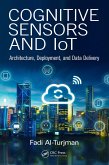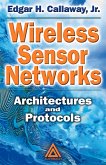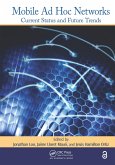While battery capacity is often insufficient to keep up with the power-demanding features of the latest mobile devices, powering the functional advancement of wireless devices requires a revolution in the concept of battery life and recharge capability. Future handheld devices and wireless networks should be able to recharge themselves automatically from the environment and optimize their energy consumption. Green Mobile Devices and Networks: Energy Optimization and Scavenging Techniques provides insights into the principles and technical challenges behind both automatic optimization of energy consumption and energy gathering from alternative environmental sources. It introduces the basic background, motivation, and principles of various technologies, supplying detailed and integrated coverage of different optimization and energy scavenging techniques. In particular, the book:Examines the technical challenges behind automatic optimization of the energy consumption in dynamic real-time scenariosConsiders different types of energy scavenging techniquesDescribes the various technologies behind harvesting energy through different sources-including solar, acoustics, kinetic, mechanical vibrations, and electromagnetic wavesStriking a balance between theory and implementation, the book links different concepts with applications of corresponding schemes and connects them to various standards. It discusses the continuous monitoring of battery life and the automatic adjustment of different functionalities-including data reception, processing and display, complexity of software modules, and perceived video quality-to provide you with a clear understanding of the technical challenges, measurement of energy gain, limitations, and future opportunities.
Dieser Download kann aus rechtlichen Gründen nur mit Rechnungsadresse in A, B, BG, CY, CZ, D, DK, EW, E, FIN, F, GR, HR, H, IRL, I, LT, L, LR, M, NL, PL, P, R, S, SLO, SK ausgeliefert werden.









